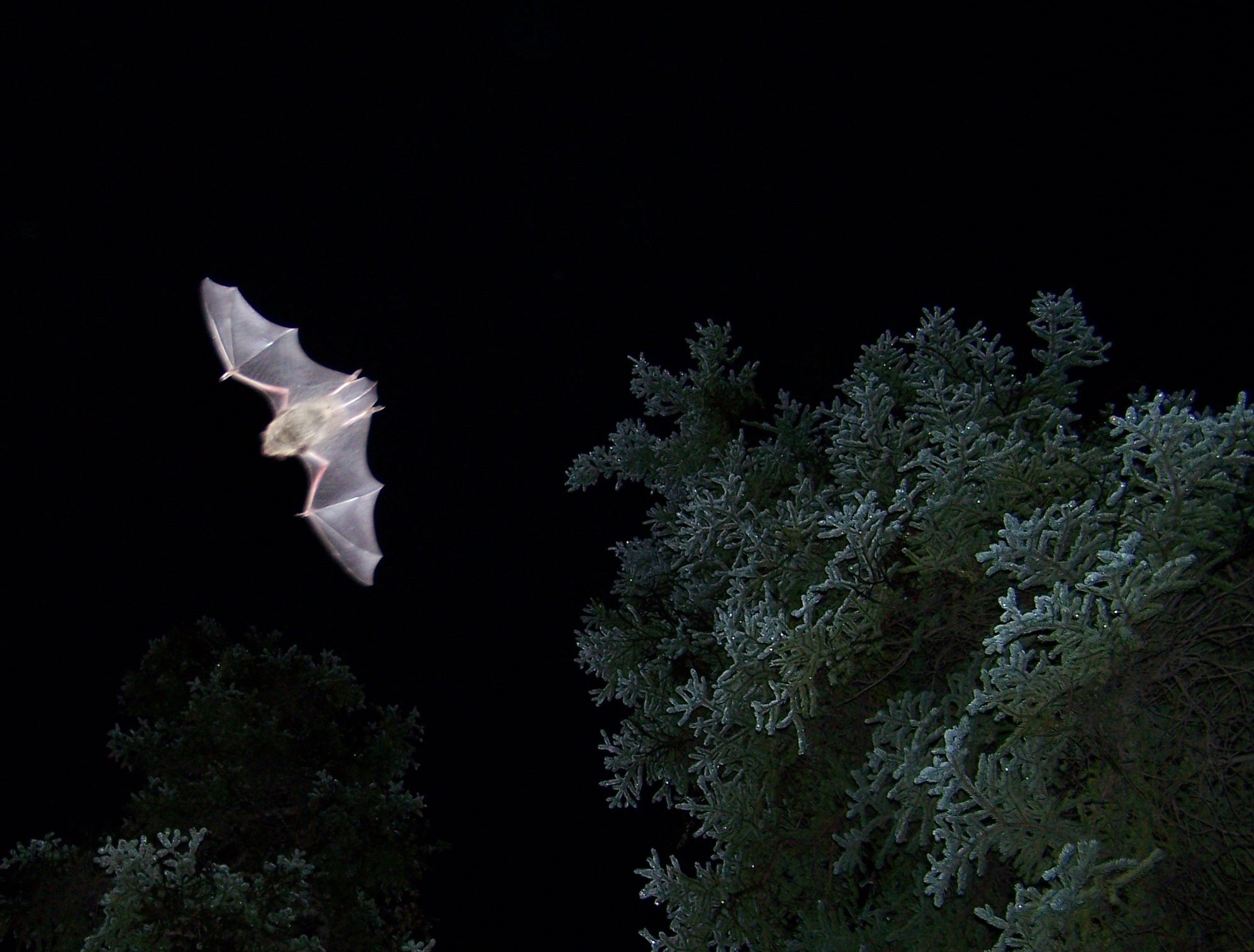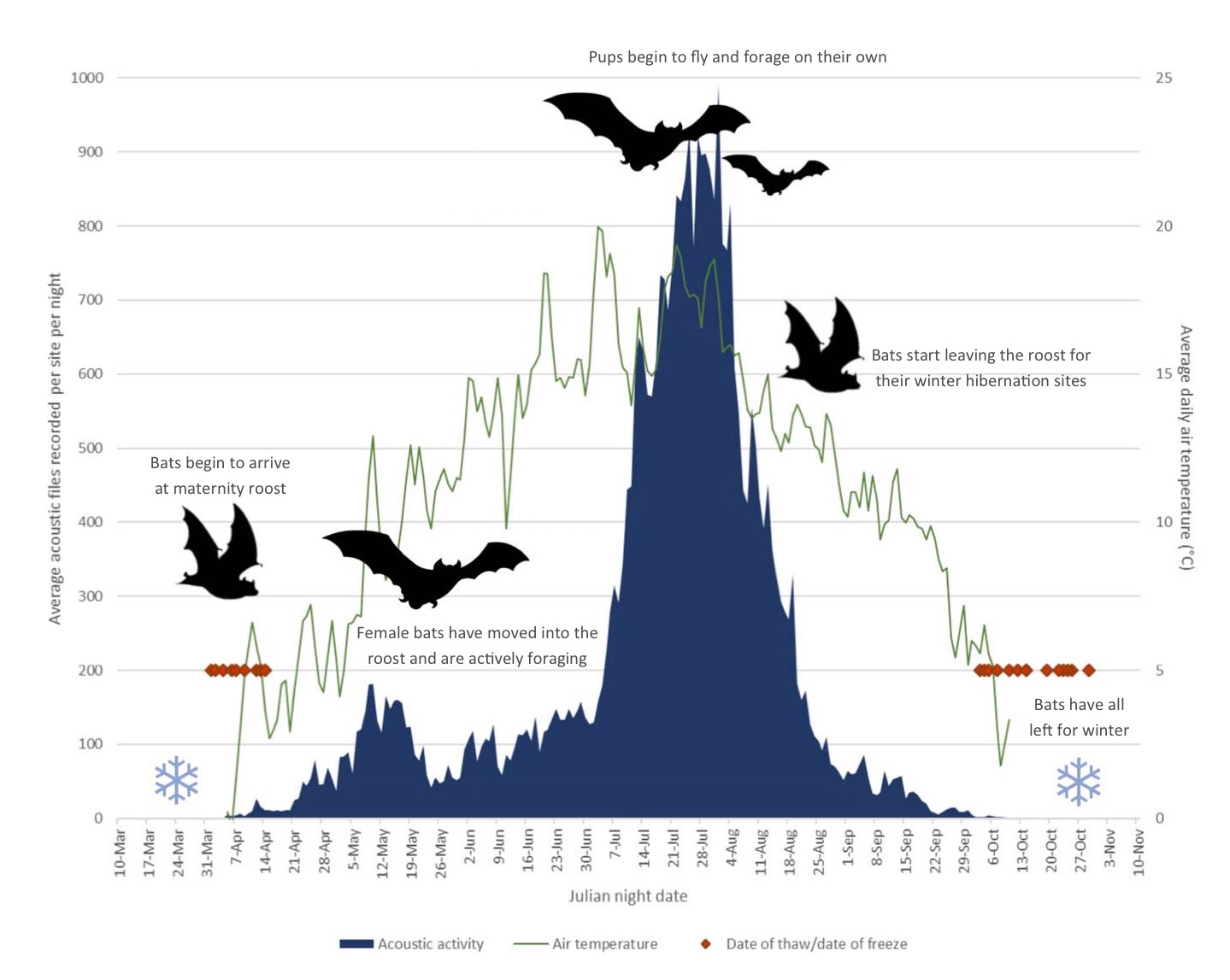Where do ‗‗‗¢┤½├¢ bats spend the winter?
Ned Rozell
907-474-7468
Sept. 14, 2022

Myotis lucifugus, the little brown bat, photographed near Haines Junction in the Yukon.
Jesika Reimer, a bat expert and consultant, has held in her hands little brown bats from the Northwest Territories to the Tanana River. Along with a few colleagues around ‗‗‗¢┤½├¢, she is sharing new information about the farthest-north bat.
She said this palm-size creature that weighs as much as a quarter lives more than twice as long as your dog: from 35 to 40 years.
Mama bats, now hanging out there in some unknown space, are storing the sperm they received during mating swarms. If things go well this winter, the females will emerge next spring with a tiny fetus growing within them. They have only one pup each summer.
In early spring, mother bats suddenly appear in large maternity roosts. ‗‗‗¢┤½├¢ns have noticed bats flying in midsummer from notches in the peak of their cabins on the Salcha River and similar spots. The roosts are places where bats can rest in the daylight from their periods of hunting insects at dusk.
Following up on all the reports from people who have noticed bats in their buildings, biologists over the years have captured and tagged bats and have put out sound monitors to see when bats are squeaking around.

On Joint Base Elmendorf-Richardson in 2018, biologist Jesika Reimer releases a little brown bat with a radio transmitter on its back.
This delicate speciesÔÇÖ association with manmade structures makes some biologists think bats exist in northern ‗‗‗¢┤½├¢ only because of us: our houses and sheds have made a marginal area to hibernate slightly more safe and warm.
But Reimer and other biologists found bat maternity colonies away from buildings. In the Copper River Valley, Reimer and her coworkers in summer 2017 radio-tagged mother bats at their cabin roost. When later tracking them with handheld receivers, they found the mother bats did not return to the cabin.
Instead, they tracked the bats to an old cottonwood tree that had a foot-high pile of bat guano at its base. They counted more than 100 bats flying out of a crack in the tree.
There was a natural bat nursery, which suggests to Reimer that little brown bats donÔÇÖt need buildings, or humans, to thrive. Maybe they just roost in cabin crevices because they resemble the tight, dark spaces they rely upon in nature.
ÔÇ£Large maternity colonies in trees shoots down the theory that bats only came to ‗‗‗¢┤½├¢ as buildings went up,ÔÇØ she said.
As Reimer was making her discovery, Colorado State University scientists working on Fort Wainwright lands were finding the same thing. Sound detectors they installed in likely bat spots away from buildings picked up bat echolocation. Biologists radio-tracked bats to several dying or dead poplar and birch trees on Army lands near Fairbanks. They also tracked them to buildings.
One of those researchers, Garrett Savory, thinks their findings give a clue to one of the biggest mysteries surrounding far-north bats:
ÔÇ£I think bats do hibernate in interior ‗‗‗¢┤½├¢, given that we have detected bats in early April when there is still snow on the ground, and have detected bats late into September,ÔÇØ he said. ÔÇ£We still don't know where bats hibernate, however.ÔÇØ

Biologist Jesika Reimer created this graphic showing the summer activity of little brown bats in northern ‗‗‗¢┤½├¢.
Reimer agrees that far-north bats must be hibernating north of the ‗‗‗¢┤½├¢ Range, rather than migrating south through the mountains.
From the Kenai Peninsula to Fairbanks, in springtime bats seem to all appear at their roost sites the instant the average air temperature gets above freezing. If they were migrating from farther south, there would probably be a time lag in the date the farthest north bats arrived in Fairbanks compared to when they appeared on the Kenai.
ÔÇ£It seems to suggest that they are spending the winter nearby,ÔÇØ she said.
Since the late 1970s, the University of ‗‗‗¢┤½├¢ Fairbanks' Geophysical Institute has provided this column free in cooperation with the UAF research community. Ned Rozell ned.rozell@alaska.edu is a science writer for the Geophysical Institute. A version of this story was published in 2019.


